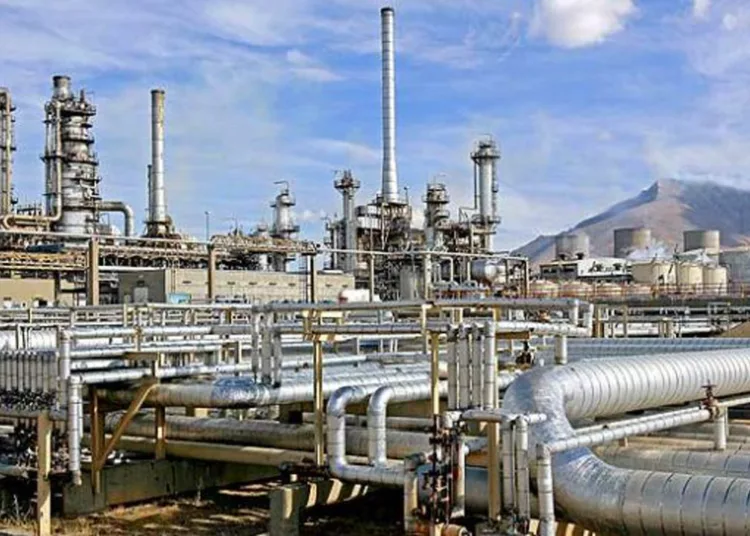Key petroleum marketers have embraced expert opinions calling for a review of the Petroleum Industry Act (PIA) to give a strong bite to market reforms that will engender efficiency and long-term investment opportunities in the downstream oil sector.
Marketers also advocate a review of the PIA to examine necessary adjustments to ensure the Act aligns with the petroleum industry’s current realities.
They expressed the belief that a comprehensive review of the PIA would provide opportunities to address emerging challenges, promote investment, and enhance the overall efficiency of the petroleum sector.
In a note shared with our correspondent, the national president of the Petroleum Products Retail Outlets Owners Association of Nigeria (PETROAN), Dr Billy Gillis Harry reiterated the Association’s opposition to the sale of petroleum products or any other products within Nigeria in dollars.
Gillis Harry said such a practice would harm the economy, putting undue pressure on foreign currency and exacerbating Nigeria’s already challenging inflationary situation.
“We urge the government to ensure that all transactions within the country are conducted in the local currency, the Naira, to protect the economy and the welfare of Nigerians.
“We also wish to commend the federal government for its commitment to allowing market forces to determine pricing, which encourages healthy competition and prevents the monopoly of any kind. This approach will ensure that the petroleum market remains competitive, innovative, and responsive to the needs of Nigerians,” he said.
Other experts with knowledge of the industry said that petrol pricing in Nigeria will continue to create market conditions that are not suitable for investors and guarantee affordability for end users unless the government adjusts its policy to support sourcing products from multiple suppliers.
According to industry analysts, the deregulation of the downstream petroleum industry should throw open product sourcing opportunities from countries and facilities that will guarantee supply accessibility and pricing opportunities.
LEADERSHIP Friday gathered from key industry operators that encouraging local refining does not necessarily imply that products from such facilities would guarantee affordability and reliability in terms of supply.
Vice president, Crude, ArgusMedia, James Gooder, shared expert perspectives on Nigeria’s refining landscape and trade flows at the Press Training on Refinery Operations and Trade Flows in Nigeria, hosted by the Major Energy Marketers Association of Nigeria (MEMA) in Lagos on Wednesday, volunteered certain information indicating that Nigerian refineries operated by the public sector and those held by private companies are not a guarantee of affordable petrol for consumers.
Executive secretary and chief executive officer (CEO), Major Energies Marketers Association of Nigeria (MEMAN), Clement Isong, while evaluating the dynamics of the market, provided more insight into the operability of existing refineries, saying Nigerians cannot completely replace import opportunities with in-country refining as that would not completely compensate for any gaps that could possibly arise due to unforeseen condition
In that opinion, operability refers to the ability of a system or device to function reliably and safely according to predefined operational requirements.
Isong said that though the Dangote Refinery is a game changer, there is nothing wrong with sourcing or importing products from abroad, adding that importation or multiple sourcing systems would only guarantee affordability, efficiency and reliability.
Isong also raised the issue of the high price of Nigerian crude, which cannot justify the argument that the crude-naira policy ensures fair pricing of refined products.
According to Engr. Mark Williams, a petroleum engineer and consultant, said that the affordability issue has prompted the Dangote refinery to channel energy into the importation of West Texas Intermediate (WTI) crude from the U.S., which is currently considered cheaper than Nigerian crude.
Gooder corroborated the claim that Dangote has seen Angola and Brazil as credible suppliers of quality but affordable crude oil to help sustain operations.
Dangote Refinery is reported to be sourcing crude oil from the United States and Angola, among other countries, as it ramps up operations and explores alternative supply options.
The Dangote Refinery, which started production in January 2025, has been importing crude oil from the United States, Angola, and Algeria.
The refinery is also in discussions with the government to sustain the naira-for-crude arrangement and has been exploring alternative crude oil supply options, including imports.
The refinery has recently made purchases from Angola (Pazflor grade) and Algeria (Saharan Blend).
The Dangote Refinery has reportedly received over three million barrels of American crude, in addition to shipments from Angola and Algeria.
Although, some industry experts have called on the federal government and the NNPC to sustain the naira-for-crude deal, as ensuring a steady supply of crude oil to domestic refineries is critical to achieving energy security and reducing Nigeria’s reliance on imported fuel, others have kicked against it.
For instance, the Depot and Petroleum Products Marketers Association of Nigeria (DAPPMAN) has advised the federal government to weigh the consequences of sustaining the Naira-for-crude oil transaction framework.
The executive secretary of the Association, Olufemi Adewole, said the policy presents significant risks that could affect Nigeria’s foreign exchange stability and deter foreign direct investment (FDI). The country also risks isolation from the global market.
Adewole highlighted concerns over the volatility of the Naira, emphasizing that crude oil transactions are traditionally carried out in U.S. dollars due to its stability and global acceptability.
He cautioned that failure to align with this international standard could isolate Nigeria from global markets, diminishing trade opportunities and discouraging investment inflows.
“The global oil market operates in U.S. dollars due to its stability. Continuing the policy could alienate trade partners and investors who rely on the predictability of the dollar,” he stated.
He further stressed the need for policies that recognize the unique nature of the oil and gas sector to ensure sustained national competitiveness. He noted that reactionary policies often create skewed economic benefits that primarily favor select industry players rather than the broader economy.
Citing the historical instability of the Naira due to inflationary pressures and fluctuating exchange rates, Adewole asserted that tying crude oil transactions to the Naira could negatively impact Nigeria’s economic growth, the sustainability of the sector, and the efficiency of the oil and gas value chain.
Adewole further warned that Naira-for-crude transactions could place an unsustainable burden on Nigeria’s foreign exchange reserves. He argued that the Central Bank of Nigeria (CBN) might struggle to maintain currency stability amid insufficient dollar inflows, leading to additional economic strain.
“It is almost inevitable that implementing this policy could further deplete Nigeria’s foreign exchange reserves. The CBN may find it increasingly difficult to stabilize the Naira due to inadequate dollar inflows. Given that oil transactions have historically been a primary source of foreign exchange, disrupting this mechanism will likely intensify economic pressures,” he explained.
While proponents of the policy argue that Naira-for-crude transactions could enhance economic sovereignty and strengthen the local currency, Adewole stressed that policy decisions must prioritise sustainable economic impact.
“DAPPMAN supports all efforts and policies aimed at strengthening the Naira. However, these strategies must be capable of driving major economic reforms that address the underlying causes of the Naira’s weakness. Nigeria must strike a balance between national interests and global market realities. Economic policies are most effective when they are not shaped by sector-specific demands but rather by long-term economic sustainability,” he said.
Adewole referenced Venezuela’s unsuccessful attempt in the early 2000s to replace the U.S. dollar with its local currency in oil transactions, which contributed to severe economic destabilization.
“Nigeria needs to tread cautiously and learn from historical precedents. Policies that disrupt established international trade norms without adequate safeguards can have unintended consequences. We must ensure that our policies are designed to maximise benefits for all Nigerians,” he advised.
DAPPMAN, according to Adewole, remains committed to working with regulators and other stakeholders to promote efficiency and seamless access to “reliable, safe, and world-class solutions” in the downstream sector.
He reiterated the need for policies that align with international market realities while ensuring long-term economic stability for Nigeria.
“The future of Nigeria’s oil and gas sector depends on pragmatic policies that facilitate investment, encourage transparent competitiveness, and protect the nation’s foreign exchange reserves. By fostering an enabling environment for private-sector participation, Nigeria can achieve a sustainable energy landscape that benefits the economy,” he concluded.
On its part, the Petroleum Products Retail Outlets owners Association of Nigeria (PETROAN) noted that the Naira-for-Crude initiative, whose test run duration of six months has ended, said however that the federal government is currently reviewing the policy to determine its future.
The Association said that contrary to some reports, the policy was not terminated but is undergoing a review after the initial test run period.
“We understand that the Ministry is still considering the feasibility and sustainability of the naira-for-crude initiative. We urge the Ministry to continue its deliberations, taking into account the interests of all stakeholders, including petroleum products retailers, to ensure that any policy decisions align with the nation’s economic goals,” it said.
Some analysts have warned that disputes over pricing and supply terms could deter foreign investment in refining, while lack of long-term crude supply agreements may unsettle markets.
Some economists believe that raising production level would also guarantee supply of crude to local refineries.
According to reports, only 14 per cent of locally produced crude are made available for in-country refining while 86 per cent is exported.
According to an analysis by the Society of Energy Editors of Nigeria, Nigeria’s crude oil output remains below its OPEC quota (estimated at 1.5 million barrels per day (bpd) in Q1 2025), with security, ageing infrastructure, and IOC divestments hindering efforts to ramp up production.
The group notes that though government aims to boost output to ~1.8 million bpd by mid-2025, this will depend on improved security in the Niger Delta and fast-tracking new projects like Bonga North, Nsiko field projects.





